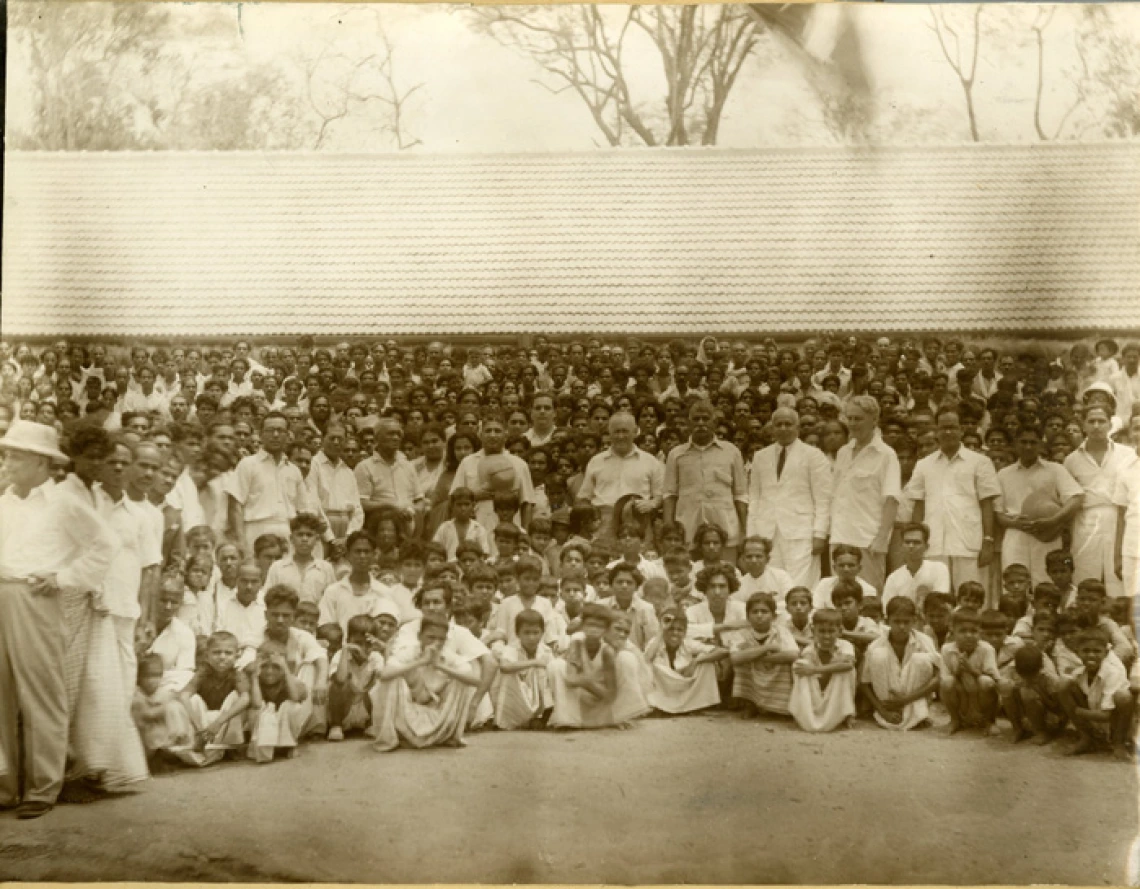Duane Spencer Hatch papers

Group Photo taken during "The Last Visit of the Prime Minister"
Collection area: Political Affairs
Collection dates: 1912-1982 bulk (bulk 1940-1982)
The inclusive dates for this collection are 1912-1982, with the bulk of the material dating from 1940-1970. The materials in the collection relate to Duane Spencer Hatch, his personal life and his research. Personal correspondence, publicity materials from his popular works,Up From Poverty and Toward Freedom From Want, and materials from a possible book about the life and work of Hatch is found in this collection. His wife, Emily Hatch, accompanied Hatch to rural locations to aid in his research and to do some research on her own. Personal materials from her include business correspondence, speeches conducted, and written reports and typescripts. Hatch’s research materials about rural reconstruction, community development, and fundamental education from Arizona, India, Sri Lanka (formally known as Ceylon), Costa Rica, and Mexico are contained in this collection. When identifying the folders in the collection, Ceylon and Sri Lanka are interchangeable. Note that Hatch’s research materials use the term Ceylon, because he conducted his research before the change of name to Sri Lanka. Research materials include personal diaries and notebooks, reports, correspondence, and hand written notes. Hatch worked with multiple organizations including UNESCO, YMCAs of India, the Food and Agriculture Organization of the United Nations, and the International Alliance of Women. Materials pertaining to these organizations include reports, correspondence, and publicity materials. The collection also contains photographs, personal photo albums, prints, positives, and negatives of the Hatch family and the locations and villages that they researched and visited. The collection contains movie reels and access copies in DVD format of movies made by Duane Spencer Hatch and The Mexican Story, a collaboration with his brother, Ira Hatch. Audio materials include records and access copies in CD format of talks given by Duane Spencer Hatch about the work he has done in India, Mexico, and Costa Rica. Films in box 9 have been placed in cold storage due to fragile condition.
Duane Spencer Hatch (1888-1963) was born on a farm in Greenwich, New York and was a pioneer in rural reconstruction and community development. He graduated from Cornell University in 1915 with a B.Sc in Agriculture, an M.Sc in Agriculture in 1916, and another Master’s degree in Rural Sociology, Economics, and Education. He continued his education at Yale University and Cornell University for a PhD in Rural Sociology, Economics, and Education, which he received in 1928. In 1916, Hatch went to India and Mesopotamia for service with British and Indian troops during World War I, under the auspices of the Indian National Council, Young Men’s Christian Association (YMCA). He later returned to India, with his wife Emily Hatch, to begin his long career in rural reconstruction under the support of the YMCAs of India and was later appointed to the United Nations' Food and Agricultural Committee. Starting in the 1940s, he directed community developments in Mexico. After retiring from the YMCA, he served as the director of an agricultural project for the Pan American Union in Costa Rica. Hatch then went on to establish a Community Development Center for the United Nations (UNESCO) in Sri Lanka (formally known as Ceylon). From 1957-1960, he worked in Parker, Arizona as the Director of Community Development for the Colorado River Tribes Reservation. He then retired to Tucson, Arizona where he became a consultant to the Sociology Department at the University of Arizona and Director of Field Work for students working towards their MA Degree in Community Development.
A collection guide explains what's in a collection. New to using our collections? Learn how to use a collection guide.
Collection guideAccess this collection
Visit us in person to access materials from this collection. Our materials are one-of-a-kind and require special care, so they can’t be checked out or taken home.
How to cite
Learn how to cite and use materials from Special Collections in your research.
